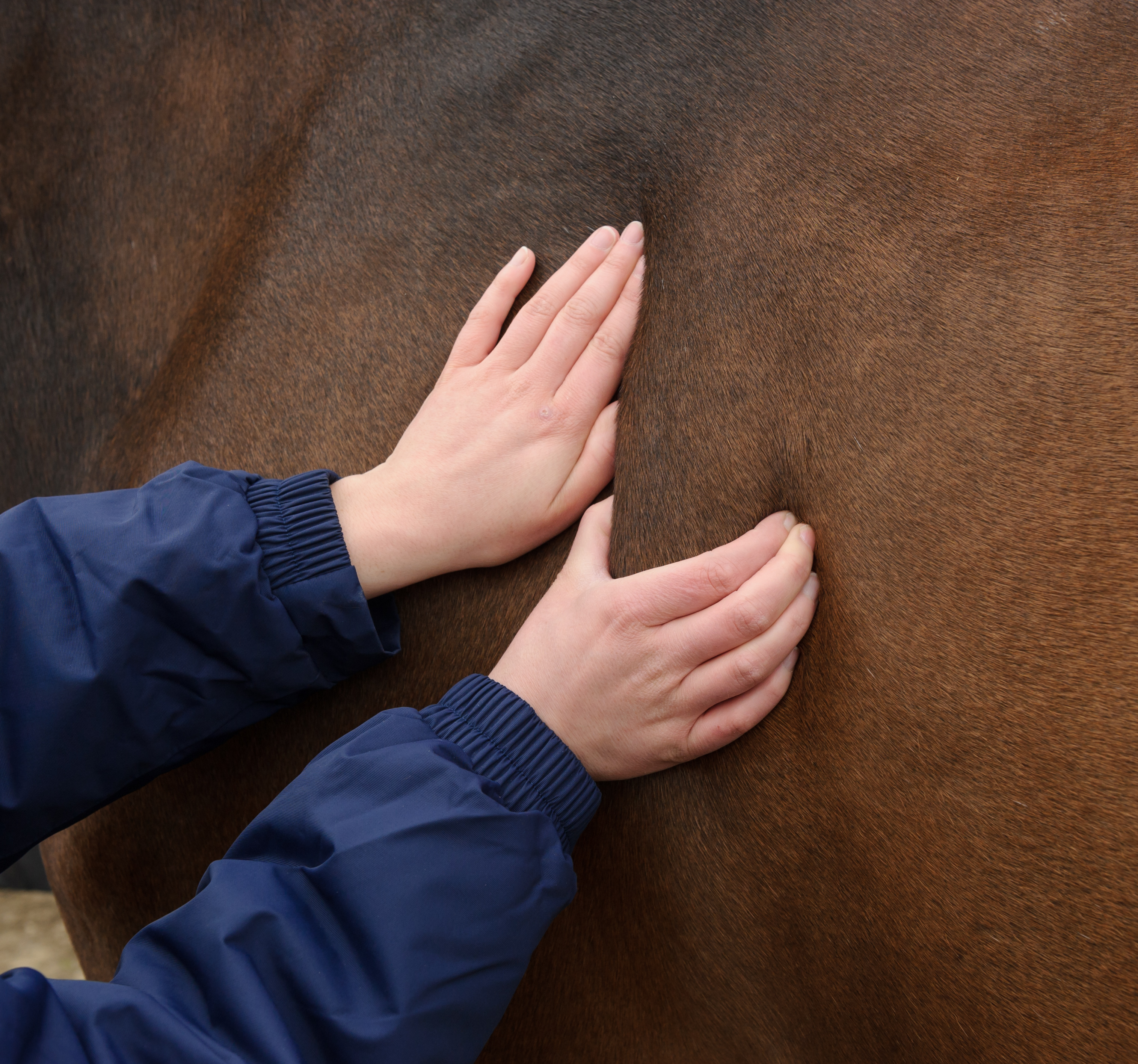We all know that one horse or pony on the yard that only has to look at grass to put weight on! Feeding the good doer can be incredibly difficult, so we have put together some of our top tips to prevent an unhealthy weight gain. An overweight horse or pony is more likely to suffer from long-term health problems including Laminitis or Equine Metabolic Syndrome.
Measuring Your Horse’s Weight
First thing is first, you need to determine whether your horse fits into the overweight category or not, and one of the best ways to do this is to Body Condition Score your horse. This is a visual assessment of your horse’s condition, to assess how much fat is covering particular points of your horse. The scale goes from 1-5, and the ideal is a body condition score of 2.5-3 (depending on the individual). Good doers tend to have a condition score of 3.5-5, which can put their health at risk.
You should be aware of any regional fatty deposits, such as a cresty neck, fat behind the shoulder or fat-filled eye sockets. By regularly assessing whether your horse is at the correct weight for their height and breed, you will be able to easily monitor any changes & adjust your horse’s diet accordingly.
Don’t Go into Starvation Mode
While it may be tempting to make drastic changes to the diet of a good doer, this is not advisable. Remember that horses are trickle feeders, so need to eat little and often - aim for 1.5% of their bodyweight per day in forage. This can be reduced down to 1% of bodyweight for obese horses but must be carried out under veterinary supervision as severe feed restriction can lead to health problems.
Reduce Grazing
Grass is actually a major source of calories for horses, and they can easily consume 5% of their bodyweight in grass per day! Reducing grass intake is one of the best ways to decrease calories for a good doer - you can look at strip grazing your field, reducing the hours they are out grazing, or even introduce a grazing muzzle.
Exercise Daily
Just like with humans, exercise is an important factor when it comes to losing weight in horses. Not only does exercise help to utilise energy, but as muscle begins to develop, your horse’s metabolism will increase. Allowing them to burn more energy at rest. Like with anything, introducing exercise slowly is key. Start off with 30 minutes of brisk walking, and gradually increase this as your horse’s fitness improves. If you are short of time, lunging is a great way to add more exercise to your horse’s regime too.
Feed Low-Calorie Forage
The majority of a good doer’s diet will consist of forage, so getting the right source of forage is key. Soaking hay for 12 hours is one of the best ways to reduce calorie content. Alternatively, mixing hay with a low calorie oat or barley straw, providing more functional fibre (more chewing, less calories). If you are currently feeding haylage to a good doer, then we would advise considering changing to hay as soon as possible.
When determining a concentrate ration for your good doer, a feed balancer or vitamin/mineral supplement are the first to consider, ensuring a healthy balance in vitamins and minerals each day. Whilst good doers don’t require much in the way of hard feed (concentrates), a handful of chaff with our Go Lite Balancer will provide your horse with the correct level of nutrients to keep them healthy.
If you have any further questions on how to feed the good doer, why not give our Nutritional Helpline a call where our experts are on hand to help advise you - 01270 782 223.


